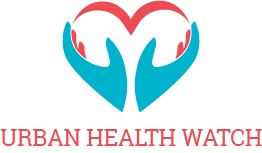For elderly citizens, it’s something that seems to always be on the mind: suffering a fall. This concept is prevalent for a reason: according to the National Council of Aging, “one in four Americans aged 65+ falls every year.” With such a high percentile, it’s imperative that seniors and caregivers know the protocol for handling the doctor’s visit after a fall.
Whether you are a home health aide or a senior citizen in California, you need to know what to ask the doctor after a drop. Thus, if you are to suffer a fall, the following will explain what to have the doctor check out!
1. Check for Any Possible New Illnesses
After suffering a tumble, it’s important to have your doctor check for any underlying new illnesses. A fall can be caused by a myriad of things; yet, it could also be a signifier of a new health issue developing.
Make certain that your doctor checks for any possible developing neurological conditions or heart conditions. Make certain to have the doctor directly address the possibility of Parkinsons. It might feel as though you are being overly careful; but remember, the goal is to ensure that, whatever caused this fall, does not happen again!
2. Walk Through Any New Medications
If you or your loved one has recently suffered a fall, there’s a likelihood that this can be traced back to the side effect of a medication. Prior to visiting the doctor, compile a list of every medication that the senior is on. Make certain to highlight any medication that could be causing delirium or bouts of confusion: this includes opiates, blood pressure medication, diabetes, or any medication taken to sedate or help sleep.
3. Make Certain to Get A Blood Pressure Reading
In order to quell the possibility of another fall, it’s important to check your loved ones blood pressure. Have the doctor take their reading when the senior is sitting, and shortly after the senior is standing. If there is a notable drop in blood pressure when the senior citizen is standing, this means they are more likely to suffer bouts of lightheadedness.
You should also have your doctor walk you through any current side effects of blood pressure medication. Be direct, ask questions, and make certain to take notes on everything. Remember, as a caregiver, it is your responsibility to advocate for your loved one!
